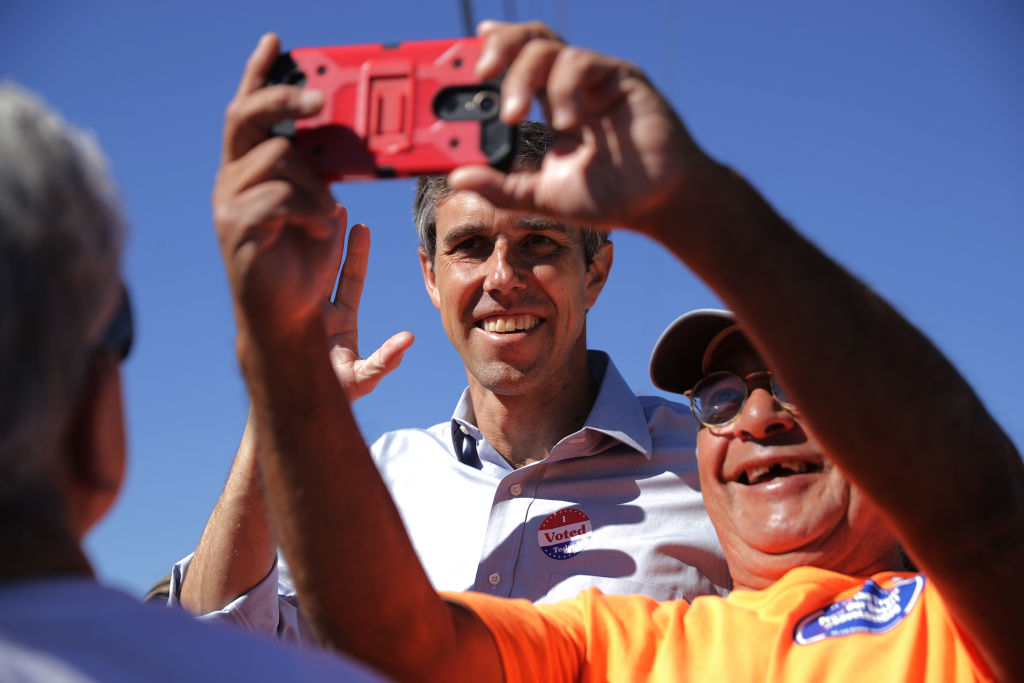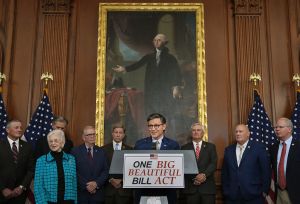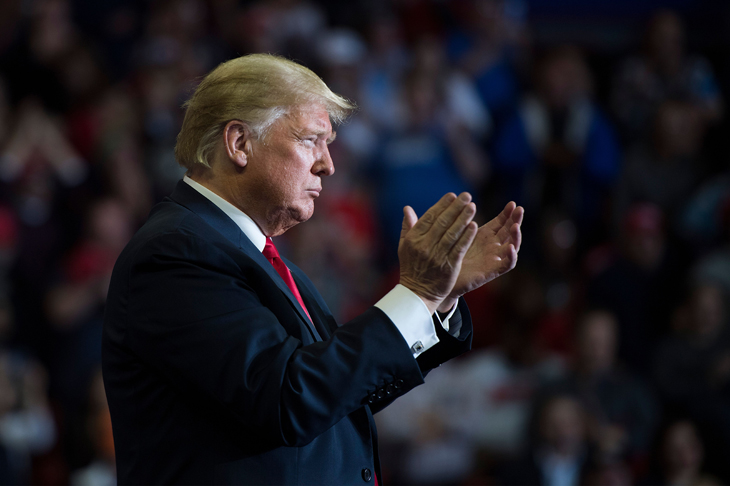All day Election Day, everyone — well, everyone in the business — looks for early signs of the results to come. I heard reports from friends in real life and on Twitter that the lines at polling stations were far longer in the D.C. suburbs and New York City today than they were during the contentious Trump-Clinton contest of 2016. Such anecdotal data seemed to confirmed the predictions of most pundits that a ‘blue wave’ would see Democrats take over the House of Representatives and make it difficult for Republicans to keep control of the Senate. But of course cities of the elites would see a lot of enthusiasm today: They’re the centers of the #Resistance determined to vote against the president, even if he isn’t directly on the ballot himself. An early race called in the D.C. suburbs of Northern Virginia was a case in point. Congresswoman Barbara Comstock, a rising star in the Republican party in the quaint time we might call pre-Trump, lost her seat in Virginia’s 10th District to Democratic challenger Jennifer Wexton.
But what about the rest of the country? Or, as some of us in Washington jokingly refer to it, ‘real America’?
Donald Trump spent the last few days traversing it, as he held last-minute rallies meant to shore up support in uncertain races in places like Ohio and Indiana. But he didn’t seem to think he’d had much (positive) effect. CNN’s Jim Acosta — the guy you’d never heard of until he found his calling under the Trump regime — reported that Trump was putting responsibility on outgoing House speaker Paul Ryan for the GOP’s losses before they’d even been tallied. ‘A separate source close to the White House said aides to Trump held a conference call with surrogates earlier this afternoon and blamed three factors: History, fundraising and retirements.’ Never mind that Ryan raised records amounts of riches, and many Republicans retiring were doing so because their equilibrium didn’t fit the Trump era. Donald Trump never takes responsibility for anything less than positive. It’s one reason he said he doesn’t ask God for forgiveness because he has nothing to repent.
I had more faith — if you can call it that — in Trump and the Republicans than the leader of the party, with all his access to polling, did. I said on television yesterday that I didn’t think the Democrats would do as well as prognosticators had it. At the beginning of the year, it seemed Democrats had it made. Republicans had only a single legislative accomplishment to show for their control of both chambers of Congress and the White House — the tax cut bill — and they failed repeatedly to repeal Obamacare, which they’d promised in their campaigns for nearly a decade. The economy has been booming, but you would barely know it from what Trump repeatedly says. Yet Democrats threw away the momentum they had. When an incumbent Democratic senator in a state that chose Hillary Clinton by 14 points — New Jersey — has to fight hard for reelection, it was clear Democrats didn’t have the high ground they thought they did. (Bob Menendez did hold onto his seat.)
The presidential election of 2016 should have taught pundits and politicos not to trust the polls. But the nation’s most highly educated seem to be the slowest to learn. East Coast voting ended under two hours ago, but it’s already clear that Democrats won’t have quite the celebration they — and just about everyone in the press — were planning. (I assume they didn’t have cannons of confetti waiting, as she famously did, though.)
Democratic senator Joe Donnelly has lost his seat to Republican Mike Braun in Indiana. Republican Marsha Blackburn has won a Senate seat in Tennessee over her widely admired, moderate challenger Phil Bredesen.
As I write this, the Florida governor’s race is too close to call, with many big precincts not yet reporting — but the winner is likely to be Republican Ron DeSantis, who in the last few days almost no one thought would triumph over Andrew Gillum, who made race a central issue in the campaign from the moment he became the Democratic candidate. And current governor Rick Scott has a narrow lead over Bill Nelson, the Democratic incumbent senior senator from Florida.
It appears the Democrats will still take control of the House (though popular predictor Five Thirty Eight kept changing its mind; its real-time odds tonight at one point gave Republicans a better chance of keeping it). But the political tides this year have made that widely predicted real ‘blue wave’ impossible. It’s hard to believe pundits didn’t see this coming, given how narrow the predicted Democratic wins were in so many states Clinton won. But politicians and consultants year after year, race after race, let wishful thinking cloud their view of America and the voters within it.

























